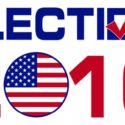Proposals to Curb Foreign Investment in the United States Gaining Steam After the U.S. Election
Proposals to Curb Foreign Investment in the United States Gain Steam After the U.S. Election Business Update | November 18, 2016 | Download Full Publication
Proposals to Curb Foreign Investment in the United States Gain Steam After Election
Acquisitions of U.S. businesses by SOEs, particularly Chinese SOEs, have been a key focus of concern about foreign investment in the United States. Chinese and other SOEs would be well-advised to acquaint themselves with the gathering focus in Washington on their U.S. investments, commercial activities (post-acquisition), and sovereign immunity under U.S. law and in U.S. litigation—non-Chinese SOEs should not assume that they will not be subjected to the same or similar scrutiny. At minimum, SOEs—Chinese and non-Chinese—may be well-served by understanding the origins of some Trump transition team (and later administration) proposals and/or their linkages to prior proposals. Privately-owned foreign enterprises should also take note, as sentiments about foreign investment in the United States may also directly or indirectly affect their planned or future investments (including, perhaps, favorably, if SOEs are (to an extent) taken out of competition for U.S. assets as a result of legal, policy, or political measures adopted in the United States).
Strategic Competition Act Would Subject Foreign Funding of U.S. Universities to CFIUS Review
Several pieces of legislation are pending in Congress to more comprehensively shore up the U.S. position in the U.S.-China technology race. The Strategic Competition Act of 2021 illustrates clearly the official U.S. view of academia’s role in the U.S.-China technology race, and the links between U.S. policies and legal measures to regulate foreign access to U.S. science and technology within and across the private, public, and academic sectors.
Huawei Ownership and the Foreign Agents Registration Act
The United States has adopted a whole-of-government approach to counter China’s “economic aggression” or “economic espionage,” umbrella terms that encompass a range of conduct including IP theft, forced technology transfer, academic espionage, and influence operations in the United States. The whole-of-government approach illustrates that the most strategically significant and complex confrontation between the United States and China is not the “trade war.” Rather, the race to dominate future technologies like artificial intelligence and 5G underpins the most complex legal and policy issues between the two nations. The U.S.-China tech war, and the United States’ whole-of-government strategy, has put Chinese technology companies under the hot light of U.S. legal and political scrutiny. Companies like Huawei and ZTE, relative unknowns in the United States until recently, have found themselves on the wrong side of U.S. law enforcement.
Proposed Legislation Would Restrict Foreign Participation in Academic Research
The “Protect Our Universities Act of 2019” is a a bill “to create a task force within the Department of Education to address the threat of foreign government influence and threats to academic research integrity on college campuses, and for other purposes." Among other things, the Bill would restrict foreign student participation in federally funded academic research deemed "sensitive" to national security.
Hdeel Abdelhady Briefed Chinese Delegation on Trade, Investment & Tech Ventures
Hdeel Abdelhady briefed a delegation of officials from China on U.S. legal and policy developments in the areas of trade, investment, and technology ventures and transfers. The event, hosted by the International Incubator in Maryland, provided mutual learning opportunities.
Tech Wars: Restrictions on Foreign Access to U.S. Technology
Measures to curb foreign access to U.S. technology have taken and will likely take various forms that will cut across industries and legal disciplines. Among them, as discussed below, are restrictions on foreign access to and influence on U.S. technology through (1) foreign investment, (2) supply chain exclusions, (3) limits on participation in academic and other research, (4) legal or political curbs on U.S. technology access or transfers through third countries, and (5) countermeasures against foreign control of raw materials essential to technological manufacturing and innovation.
Global Magnitsky Sanctions “a Central Tool of U.S. Foreign Policy”
United States Lobbies G-7 Nations to Adopt Global Magnitsky Sanctions, Now a "Central Tool of U.S. Foreign Policy" As discussed extensively on this website and at MassPoint PLLC, the United…








